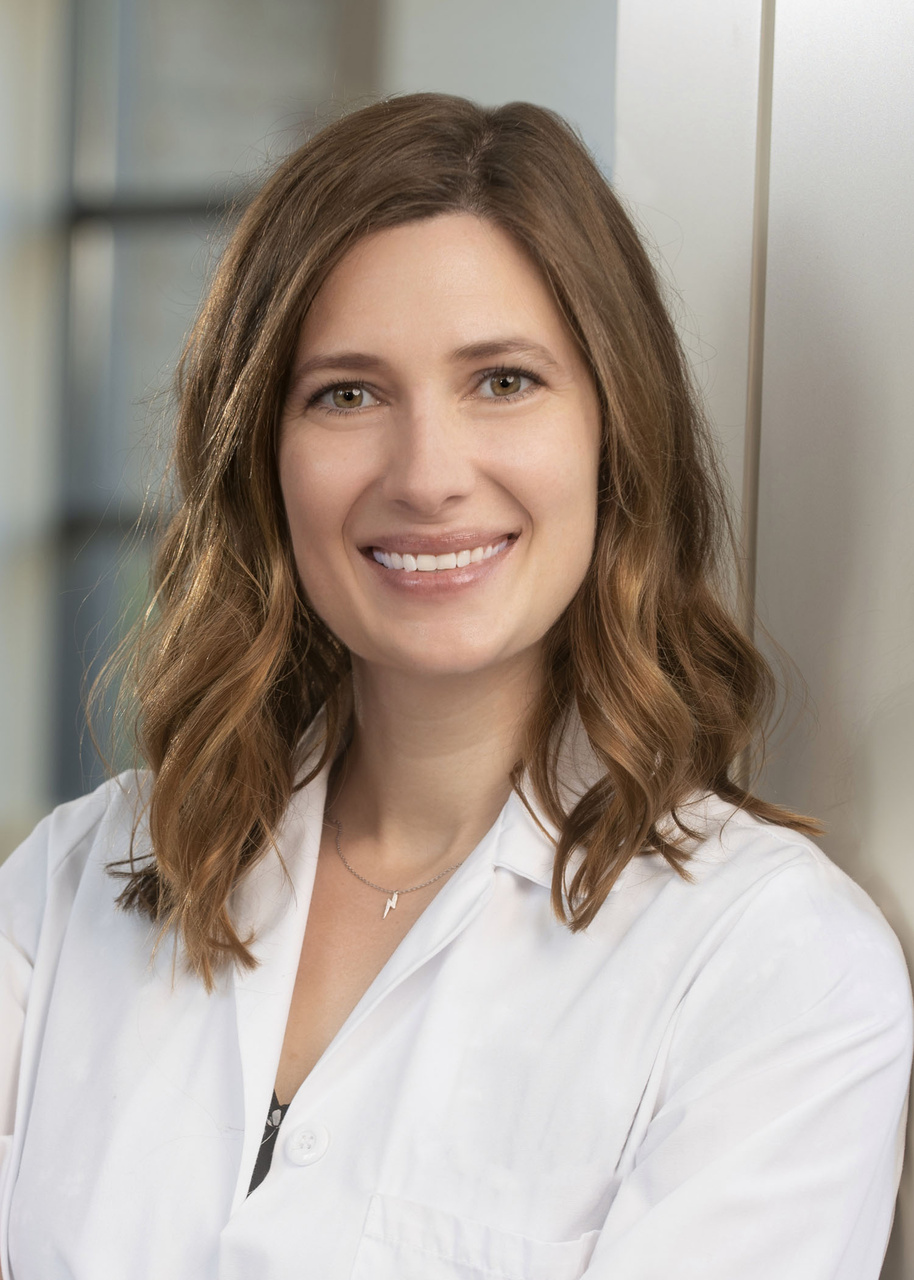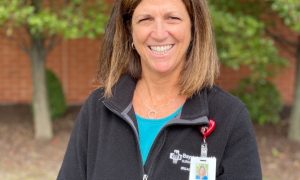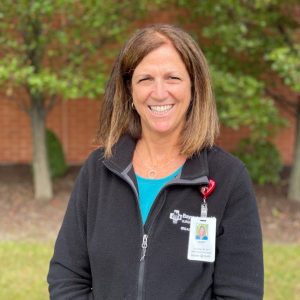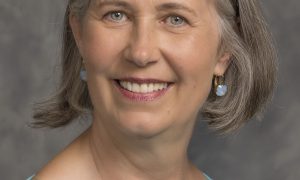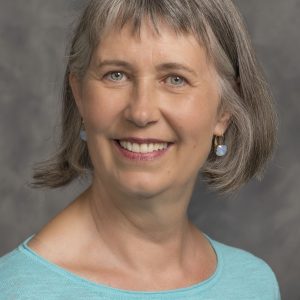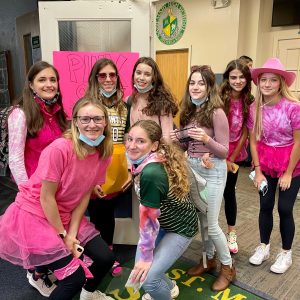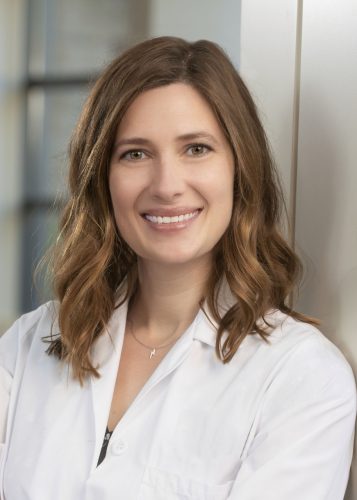
Dr. Ann Friedrich, the new breast surgeon at Baystate Noble Hospital. (SUBMITTED PHOTO/BAYSTATE HEALTH SYTEMS)
WESTFIELD — As National Breast Cancer Awareness Month begins, Dr. Ann Friedrich has a message for women who skipped a mammogram during the pandemic: Cancer doesn’t wait for COVID-19.
“I think that with COVID, a lot of people weren’t able to get their mammogram in 2020 — access was difficult, and there were limited capabilities,” Friedrich said. “Now would be the time to get it done, after missing it for one or two years. It’s a great time to check. We do screenings, even with the delta variant being all over the country,” she said, adding, “If you haven’t been able to get it, please do get it now. If there is a cancer, we can find it early when it’s well treatable.”
Friedrich said screening is still the most important part of successful treatment, and people need to be aware that they have options, and where they can get the screenings. She said the United States is good about screenings compared to other countries, but average outcomes for black women, and women who don’t speak English, are worse, likely because of the lack of access to screening. She said a lot of working groups are dedicated to eliminating that disparity.
Friedrich said since the 1980s, while the incidence of breast cancer has gone up, outcomes have improved. She said the five- to 10-year survival rate is now from 84 to 90 percent.
“A lot of people think, If I have cancer, it’s a death sentence, but in fact it’s very well treatable,” she said, adding that medical therapy has improved over the years, and every cancer gets an individualized treatment plan.
She said one in eight women, 12 to 13 percent of the population, will get breast cancer, and most will know someone with the disease. She said while breast cancer tends to be a disease of older women, with the majority of cases appearing at age 50 or later, some young women can get the disease from genetic mutation.
“The older you are, the more likely you are to get the less aggressive form,” Friedrich said, adding, “Not all breast cancers are created equally; some spread quickly, some are not as invasive. It’s very individualized, no two cancers, no two patients are alike.”
Friedrich, who started with Baystate Health in June, is a breast surgeon who will be operating out of Baystate Noble Hospital in Westfield. Friedrich attended medical school at Albert–Ludwigs University Hospital in Freiburg, Germany, and University of Massachusetts Medical School in Worcester. Her residency was at St. Mary’s Hospital in Waterbury, Conn., with a fellowship at Yale New Haven Hospital in Connecticut.
As a breast surgeon, Friedrich meets with patients after cancer has been detected on a screening.
She said the American Society of Breast Cancer Surgeons recommend annual screenings beginning at age 40, because surgeons do see cancers in women in their 40s. Other groups advise starting annual screenings at age 45.
“Clearly, someone at higher risk because of family history should have their screening sooner,” Friedrich said, adding that the best recommendation is to meet with a primary care physician and decide when that time to start should be, and how frequently.
When meeting with a patient once cancer has been detected, Friedrich first looks at the origin of the cancer, and whether it is from a genetic mutation.
“What we as surgeons talk to them about are their surgical options,” she said.
Friedrich said most patients have a choice with surgeries.
“There is always a question, do we conserve the breast or perform a mastectomy. When a tumor is small, most times it’s equal. A lot of patients opt to preserve their breast, which is well tolerated. Some need a mastectomy, as the tumor is too big and the risk is too high,” she said. “Oftentimes we check the lymph nodes as well; when it spreads, it goes into the lymph nodes.”
While there are as many as 40 lymph nodes, surgeons nowadays remove between one and four, which is better tolerated, whereas they used to remove around 20.
Friedrich said her second job is helping patients to navigate through multidisciplinary treatments, which can be confusing, as multiple providers and physicians take care of breast cancer.
She said medical therapy of breast cancer has improved a lot, and the options are very different now than before, when people just thought of chemotherapy and its side effects. While chemotherapy is still used to treat breast cancer, there are also new medical therapies that target certain receptors, and new medications that can often control or shrink the tumor, making surgery more successful.
October is National Breast Cancer Awareness Month. Every week this month, The Westfield News will partner with Baystate Noble Hospital to share some of the stories of the medical professionals who treat breast cancer at Westfield’s community hospital. For more information about the hospital, visit baystatehealth.org or call 413-571-0000.

